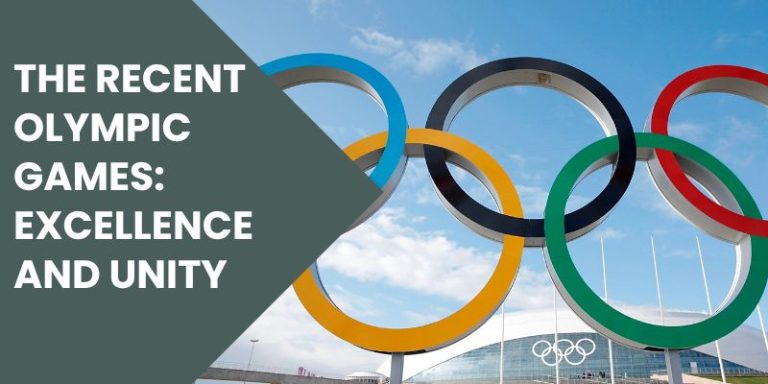Every four years, the world unites in a celebration of football that transcends borders, cultures, and languages. The FIFA World Cup, often simply referred to as the World Cup, is not just a sporting event; it is a global phenomenon that captivates millions of fans and brings nations together in the spirit of competition and camaraderie. From its humble beginnings to its status as the most-watched sporting event on the planet, the World Cup has a rich history and a profound impact on international sports and society.
A Brief History
The inaugural World Cup took place in 1930 in Uruguay, with only 13 teams competing. Uruguay, the host nation, emerged victorious, setting the stage for what would become a prestigious and highly anticipated event. Over the decades, the tournament has evolved, expanding to include 32 teams from around the world, each vying for the coveted trophy. The World Cup has witnessed unforgettable moments, legendary players, and dramatic matches that have left an indelible mark on the hearts of football enthusiasts.
The Global Stage
One of the most remarkable aspects of the World Cup is its ability to bring together nations from every corner of the globe. It is a showcase of diversity, where different cultures, traditions, and playing styles converge on the world stage. The tournament serves as a platform for countries to express their national pride and identity, with fans passionately supporting their teams and celebrating their unique heritage.
Economic Impact
Hosting the World Cup generates substantial economic benefits. Host countries invest heavily in infrastructure, including stadiums, transportation, and accommodation, to accommodate the influx of tourists and media. The tournament generates substantial revenue through ticket sales, sponsorships, broadcasting rights, and merchandise. Local businesses benefit from the increased tourism, and the global spotlight can lead to long-term economic growth and development.
Social and Cultural Influence
Beyond the financial aspects, the World Cup has a profound social and cultural influence. It promotes values such as teamwork, discipline, and fair play, inspiring millions of young athletes around the world to pursue their dreams. The tournament also serves as a platform to address important social issues, such as promoting gender equality, combating racism, and advocating for environmental sustainability.
Memorable Moments
The World Cup has created innumerable unforgettable moments that are now legendary in the world of football. From Diego Maradona’s “Hand of God” goal in 1986 to Zinedine Zidane’s iconic headbutt in the 2006 final, these moments capture the drama, passion, and unpredictability of the sport. Legendary players like Pelé, Johan Cruyff, and Lionel Messi have left an indelible mark on the tournament, showcasing their extraordinary skills and becoming idols for generations of fans.
Future Trends
As technology continues to advance, the future of the World Cup promises to be even more exciting. Innovations such as VAR (Video Assistant Referee) have already made a significant impact on the game, ensuring fairer and more accurate decisions. The rollout of 5G networks will revolutionize the way fans experience the tournament, offering enhanced connectivity, real-time statistics, and immersive viewing experiences.
The Impact of Technology
Technology has transformed the way we experience and engage with the World Cup. Social media platforms provide fans with real-time updates, behind-the-scenes content, and interactive opportunities to connect with players and fellow supporters. Streaming services allow fans to watch matches from anywhere in the world, breaking down geographical barriers and ensuring that no one misses out on the action.
The Influence of Innovation and Entrepreneurship on Modern Society
Innovation and entrepreneurship play a crucial role in the success of the World Cup. Startups and tech companies develop new ways to enhance the fan experience, from virtual reality applications to advanced analytics that provide deeper insights into player performance. These innovations not only improve the quality of the tournament but also drive economic growth and create new business opportunities.
Environmental Sustainability
In recent years, there has been a growing focus on making the World Cup more environmentally sustainable. Host countries are implementing green initiatives, such as using renewable energy sources, reducing carbon emissions, and promoting recycling programs. The goal is to minimize the environmental impact of the tournament while raising awareness about the importance of sustainability.
The Spirit of the World Cup
At its core, the World Cup is about more than just football. It embodies the spirit of unity, friendship, and respect. It is a celebration of the beautiful game that brings people together, regardless of their background or nationality. The tournament fosters a sense of global community, where fans from different countries can come together to share their love for the sport and create lasting memories.
The Journey Ahead
As the World Cup continues to evolve, its significance on the international stage remains unparalleled. The tournament will continue to inspire future generations, break new ground in technology and innovation, and serve as a powerful force for positive change in society. The World Cup is not just a sporting event; it is a global celebration of football that unites the world in a shared passion and excitement.
Conclusion
The FIFA World Cup is more than just a tournament; it is a grand celebration of football that unites the world. It showcases the beauty of the sport, the diversity of cultures, and the spirit of competition. With its rich history, economic impact, social influence, and technological advancements, the World Cup continues to be a powerful force on the global stage. As we look forward to future tournaments, the World Cup will undoubtedly continue to inspire, innovate, and bring people together in a shared passion for the beautiful game.







